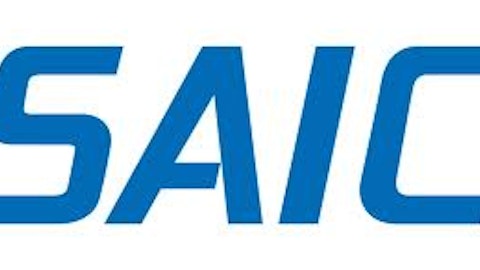These days, it is difficult to make an investment case for any widely-followed company — especially one included in the Dow Jones Industrial Average.
General Electric Company (NYSE:GE) is the exception. While the market has soared upward over the last six months, General Electric’s stock price has barely eked out a double-digit return on the year — not so impressive when compared to the overall market.
Of course, relative returns are hardly an indication of absolute value. Instead, a lower return than the overall market is merely a signal that a stock might be cheap. A thorough examination of a company’s earning power and competitive position is necessary in order to determine where the stock trades in relation to its fair value.
World leader
Jack Welch turned General Electric Company (NYSE:GE) into a market leader in most of the markets in which it competes — a status it maintains to this day. Although the company expanded beyond its circle of competence during the economic boom that accompanied the housing bubble, management has prudently sold off businesses that were no longer earning their cost of capital and has refocused the company on the promising energy infrastructure market.
In addition to shedding poor business segments, General Electric is also raising cash from decent businesses in order to redeploy capital in more promising areas. For instance, the company recently sold its stake in Comcast to raise cash for investments in its energy infrastructure division.
But General Electric Company (NYSE:GE) is not one of the world’s greatest companies just because it has a few good products. Instead, the breadth of the company’s product classes — and its ability to dominate many of them — makes it an exceptional company. It has a presence in every major developed and emerging economy in the world, and its access to economic information in those markets gives it an additional advantage.
Moreover, as one of the early adopters of Six Sigma, General Electric has traditionally enjoyed a cost advantage over its rivals. However, companies like Siemens AG (NYSE:SI) are quickly catching up.
Competition catching up
Like General Electric Company (NYSE:GE), Siemens is positioned to benefit from the boom in demand for energy infrastructure over the next decade. In addition, the company recently laid off a large number of employees — a move designed to bring its cost structure in line with General Electric’s.
However, Siemens AG (NYSE:SI) is the number one market leader in offshore wind turbines, a market in which General Electric Company (NYSE:GE) does not seek to dominate — and for good reason. Although clean energy investments have received substantial support from governments around the globe, offshore wind turbines have so far proved uneconomical. If the cost structure does not improve dramatically in the near future, Siemens could be left holding the bag on a green energy fad gone south.
While Siemens makes efforts to bring its cost structure in line with General Electric, United Technologies Corporation (NYSE:UTX) aims to expand its geographic presence to rival that of General Electric Company (NYSE:GE). Unlike General Electric and Siemens AG (NYSE:SI), United Technologies has yet to develop a significant presence in emerging markets. The company’s expansion into these markets will undoubtedly lead to higher growth at the firm — and will put more pressure on General Electric’s bottom line.
However, United Technologies Corporation (NYSE:UTX)’ competitive advantage comes from its entrenchment in its current markets. Although investments in emerging markets may help it grow its top line, the company’s prospects in these markets are less bright than in the slow-growth markets it currently dominates.
Investment case
Siemens AG (NYSE:SI) and United Technologies Corporation (NYSE:UTX) pose threats in specific markets, but no other company can take on General Electric Company (NYSE:GE) in a global onslaught. The company’s wide moat, combined with its virtually limitless access to capital, make it unlikely that its earning power will dip over the next decade.
In addition, the company plans to significantly reduce its share count in 2013 — one of the few large companies that will be buying back shares this year at a discount to intrinsic value.
As a result, the company’s 17 earnings multiple on a depressed earnings figure in a bull market makes it a good bargain for long-term investors to add to their portfolio.
Ted Cooper has no position in any stocks mentioned. The Motley Fool owns shares of General Electric Company (NYSE:GE).
The article This World Leader Is Not About to Relinquish Its Dominance originally appeared on Fool.com.
Ted is a member of The Motley Fool Blog Network — entries represent the personal opinion of the blogger and are not formally edited.
Copyright © 1995 – 2013 The Motley Fool, LLC. All rights reserved. The Motley Fool has a disclosure policy.






